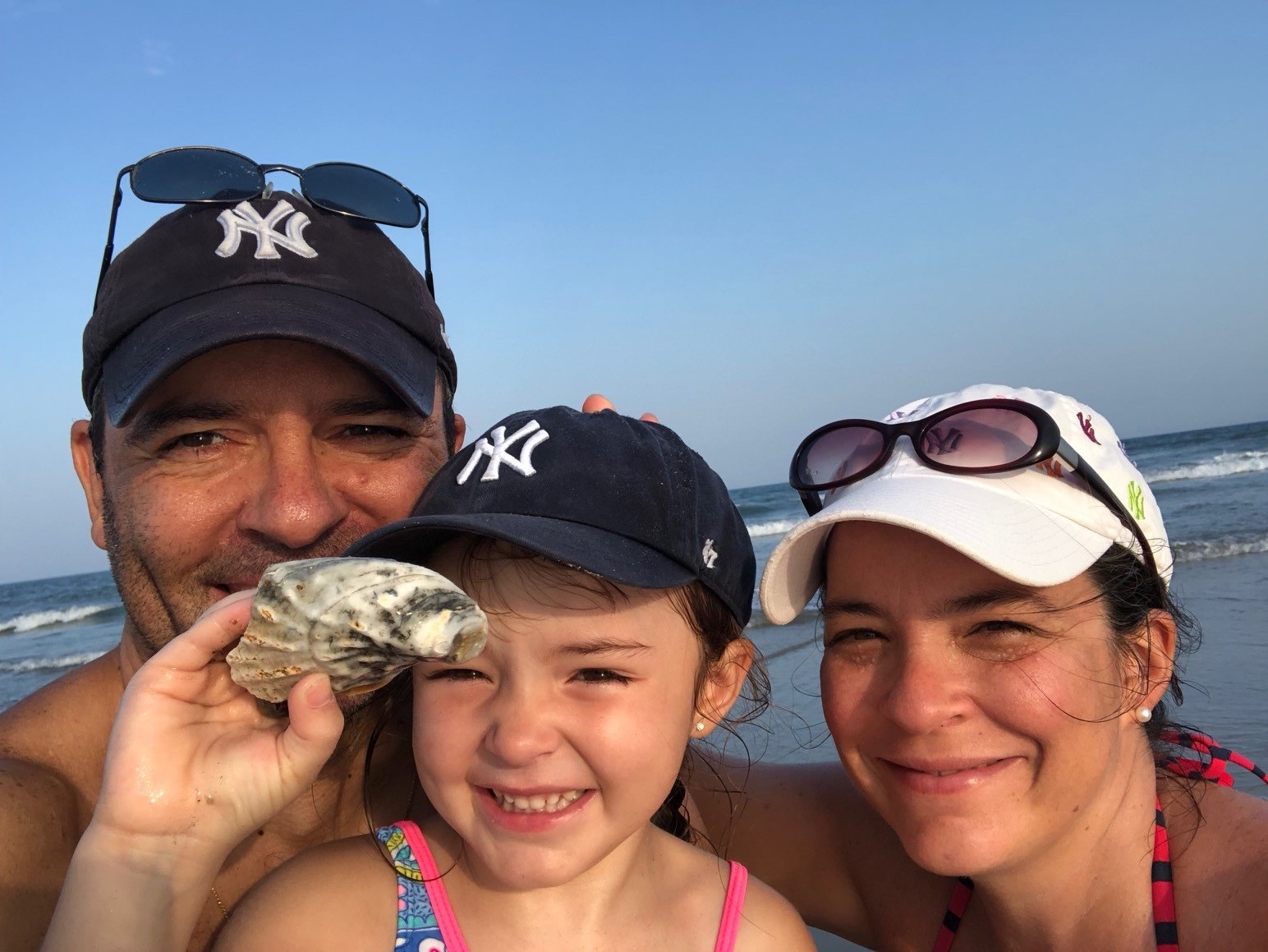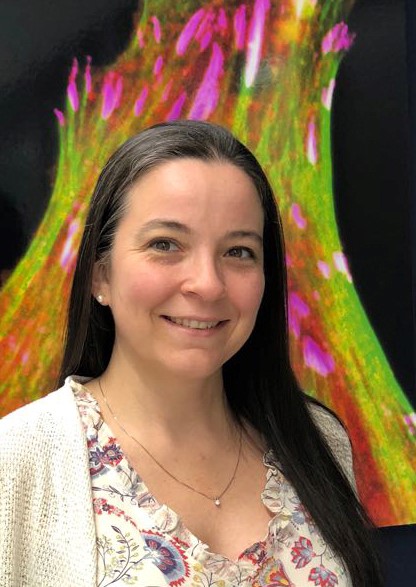
Dedicating her life to finding a cure for breast cancer, Dr. Paula D. Bos is driven to help Komen meet our Bold Goal of reducing the current number of breast cancer deaths in the U.S. by 50% by 2026. As an Assistant Professor of Pathology, she and members of her lab are dedicated to developing new treatment options for breast cancer patients with metastatic brain tumors.
In this month’s Sidewalks to Science blog, we will get to know Dr. Bos a little better.
When I’m not in the lab I…
- Enjoy the outdoors with my daughter and husband.
- Love reading and baking with my daughter.
- Am an enthusiastic follower of my daughter’s soccer team. As a native Argentinian, I am very passionate about soccer.

What I do…targeting immune cells to treat brain metastases.
Although metastatic breast cancer has spread to another part of the body, it’s still considered and treated as breast cancer. Breast cancer that has spread to the brain is treated with breast cancer drugs, rather than treatments for a cancer that began in the brain. However, treatments that work for the primary breast tumor are often ineffective at treating the metastatic brain tumor. Current treatment strategies for brain metastasis, which include surgery and radiation, only offer some improvements for most patients. Therefore, I want to improve the options available to breast cancer patients that have developed brain metastases.
I am investigating how a type of immune cell called a regulatory T (Treg) cell helps breast cancer cells that have spread to the brain grow and survive. Tregs can be found in primary and metastatic breast tumors and correlate with poor patient prognosis. A normal function for Tregs is controlling immune responses, and researchers have shown these cells have the ability to suppress the immune system response against cancer. With my Komen funding, I’m studying how Treg cells support brain metastases. I’m trying to develop a treatment strategy to disrupt the support of breast cancer cells that have metastasized to the brain that could be used in patients.
Breast cancer…touches the lives of so many.
My aunt is a 12-year breast cancer survivor, and other types of cancers have taken dear family members and friends.
Working with patients…motivates my research strategy.
Through my research, I have met and come to admire an incredible group of advocates. Their strength and tireless efforts to bring awareness and increase funding for breast cancer research are a constant incentive to intensify our research efforts.

People with breast cancer should…participate in clinical trials!
With new technologies available, science is progressing at a fast pace. We have seen major improvements in the treatment of cancer, especially with the immune system checkpoint blocking antibodies. Breast cancer has yet seen the benefit seen by other cancers, but several approaches are at the clinical trial stage.
Komen is…about patient advocacy!
I have always been motivated to do research to answer pressing clinical needs, but since I started working with patient advocates a few years ago, I now have a better understanding of where the priorities are. Involving advocates allows us to know we are on the right track to discover something of value to the patient community.
“Research is a challenging, expensive, and time-consuming activity. Knowing that patient advocates agree with the goals of our research is reassuring that we are on the right track to discover something of value.”
You can support Dr. Bos and her research by donating directly to her grant here.
If you or a loved one needs information or resources about clinical trials, call our Clinical Trial Information Helpline at 1-877 GO KOMEN (1-877- 465- 6636) or email clinicaltrialinfo@komen.org.
The helpline offers breast cancer clinical trial education and support, such as:
- Knowing when to consider a trial
- How to find a trial
- How to decide which trial is best
- What to expect during a trial
- Information about clinical trial resources